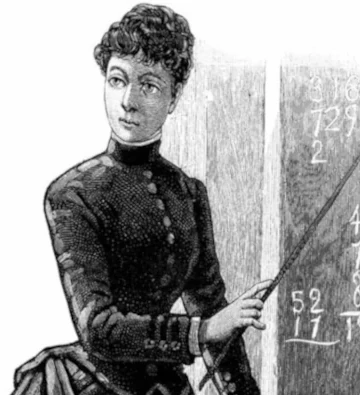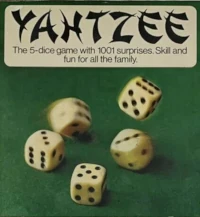Yahtzee Slang and Jargon
Have you ever felt isolated at the Yahtzee table because you didn’t understand the slang or jargon that the other players were using? It’s a more common problem than you may realize. Experts in all specialized fields, not just Yahtzee, use an insider terminology when talking about their craft. Don’t let it put it off your game. Stay in the loop while enhancing your game strategy - learn the most common Yahtzee slang.
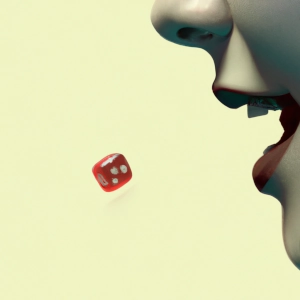
Yahtzee Terms
Communication is crucial in a game of Yahtzee as it allows players to effectively coordinate and make informed decisions about their strategy. This is true even if you’re playing a solitaire game. Recording the score is a form of communication and the occasional shout of joy or mumbled curse verbalizes a player’s feelings, even in only to themselves. Here are a few more ways that communication can impact the game:
- Resolving disputes: An errant roll where the dice fall off the table or land in an ambiguous position can lead to disagreement. Effective communication is essential to resolve these types of disputes.
- Tracking scores: Yahtzee requires players to keep track of their scores, and communication can help ensure that everyone is on the same page and that no mistakes are made, particularly when a single person is recording scores for all players.
- Building rapport: Yahtzee is often played with friends and family, and communication can help build rapport and create a more enjoyable experience. By talking and laughing together, players can strengthen their relationships and have a better time playing the game.
Communication is the verbalization of a person’s inner thoughts and feelings. And it is not always easy to make that transition from inner monologue to the spoken word. Language differences, slang, and jargon can all contribute to misunderstanding. But it also adds to the games complexity and fun.
Jargon refers to specialized language that is used by individuals within a specific industry, profession, or trade. This type of language is often used as a shorthand among people who are familiar with the specific field or trade, and can include terms, acronyms, and specialized vocabulary. The use of jargon can help people to quickly and efficiently communicate complex ideas and information within a specific context. But to an uninformed outsider, Yahtzee terms like these would have no meaning:
- Joker Rule
- Bonus Yahtzee
- Chance-Chance
Slang, on the other hand, refers to informal language that is used by a particular group of people, such as a specific age group, social class, or cultural group. Slang often includes words or phrases that are unique to a particular region, cultural group, or subculture. Slang can be used to express a particular sentiment, attitude, or emotion, and is often used in informal settings or among friends.
In the context of the game of Yahtzee, slang and jargon can play a role in the way that players communicate and strategize with one another. Different groups may have their own unique slang terms for different Yahtzee moves or strategies, and players may use jargon to describe specific game elements or concepts. Understanding the slang and jargon used in Yahtzee can give players an advantage in terms of communication and strategy, and can help to create a more enjoyable gaming experience.
Yahtzee Slang
The use of slang and jargon in the game of Yahtzee has been a popular aspect of the game since its inception. This language is not only used by players in the game, but it has also become an integral part of the Yahtzee culture. The slang and jargon used in Yahtzee can vary regionally, with different players using different terms and expressions to describe the same game elements.
Despite regional variation, the use of slang and jargon in Yahtzee is important for several reasons. It adds an element of fun and personality to the game, making it more enjoyable for players. Specialized language can also help players remember and communicate the various combinations in a more memorable way. For example, using a unique term to describe a Full House can make it easier for players to remember and identify this combination when they see it on the score sheet.
The use of slang and jargon can also be influenced by the player's level of experience and familiarity with the game. Novice players may struggle to understand the more complex jargon used by seasoned Yahtzee players, making it difficult for them to follow the action and make informed decisions. On the other hand, experienced players who are familiar with the game's jargon can use this knowledge to their advantage, keeping their opponents guessing and making strategic moves that they may not have considered otherwise.
Yahtzee as Slang
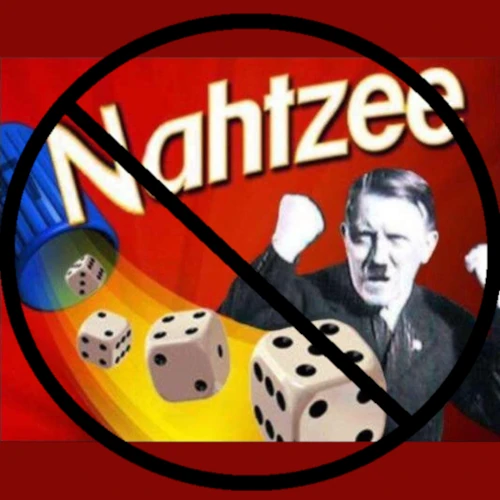
In addition to all the jargon in Yahtzee, the game has occasionally taken on a life of its own as a slang term itself, sometimes in ways that are controversial or unintended. One of the more unfortunate examples is its use as a euphemism for “Nazi,” particularly in online discourse where coded language is often employed to evade moderation. This stems largely from the phonetic similarity between the words, leading to instances where individuals substitute “Yahtzee” when referring to Nazis, either as a joke or as a way to disguise inflammatory rhetoric. While this usage is not widespread in everyday conversation, it highlights how language and pop culture references can be co-opted in unexpected ways.
On a lighter note, Yahtzee has also been used in casual speech to express excitement or a stroke of luck, much like shouting “Bingo!” or “Jackpot!” Rolling a Yahtzee in the game is a rare and fortunate event, so the term has naturally evolved as an exclamation in moments of success or good fortune. Whether in sports, gambling, or even day-to-day situations, people might call out “Yahtzee!” when they achieve an unexpected victory or favorable outcome. This more positive and widely accepted slang usage contrasts sharply with its problematic appropriation, demonstrating how the same word can carry vastly different meanings depending on context.
Yahtzee Translation
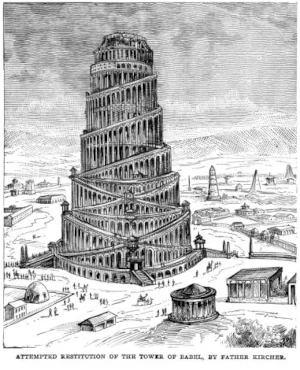
We here at the World Yahtzee Institute (WYI) take pride in our role as the people’s number one Yahtzee propaganda outlet. And it’s a role we take seriously, with local branches in nearly every Yahtzee-playing country on the planet. Our corporate headquarters has been likened to a futuristic wonderland, with its high-tech gaming equipment and state-of-the-art research facilities, but the daily 9-to-5 grind still takes its toll. So from time to time, we take a break from glorious number-crunching to answer letters about Yahtzee strategy from dice comrades across the globe.
Readers in this week’s batch report being tripped up by ponderous insider Yahtzee lingo and dice slang terms. Specialists in many fields, from medicine to music, have developed unique jargon to talk about their trade. Playing Yahtzee is no different – a distinct terminology flows naturally amongst fellow players. But not everyone is happy with the current state of affairs. A Yahtzeeist from Cardiff who chose to remain anonymous put it succinctly: “Enough with the slang, just get to the point!” Yahtzee slang is a normal extension of the game but is it possible to go too far? We’ll set the record straight.
And as always, remember to use the Institute’s patented and guaranteed PROVEN Yahtzee strategy to build a tactical foundation before moving on to more advanced techniques. Reader letters may be lightly edited or condensed for clarity.
We Have the Meats
Dear Yahtzee Manifesto,
My niece and I were watching the Great Lakes Yahtzee Championship on the TV and you could plainly hear the runner-up, Lorna Nguyen, say that she never goes for the Large Straight “without the meat.” I had no idea what she was talking about but I felt a bit embarrassed in front of my niece because I thought it sounded like an inappropriate comment - in other words, "smut". I never imagined I’d ever hear something like that from a professional. Can you please explain to me what the heck she was talking about??
Sincerely,
Confused in Sault Ste. Marie, MI
Dear Confused,
No need to blush! The Great Lakes Championship is sanctioned by the WYI and participants are held to the highest standards. But it sounds like this is a very G-rated misunderstanding. By alluding to meat in reference to a Large Straight, Ms. Nguyen was using a common metaphor to compare a the score to a sandwich. The meat is referring to a run of contiguous numbers in the middle of a Small or Large Straight. For example, if you got a Three, Four, and Five on your first roll then the meat is complete and you just need "the bread" - a Two and a Six - to finish your delicious Large Straight sandwich.

Top Yahtzee players typically have a Small Straight conversion rate above 95%. It isn’t too difficult to roll a Smally but the Large Straight can prove to be much more of a challenge. Even the pros are often left wanting when attempting to roll the Large Straight. In order to increase their conversion rate, a common tactic is to only go for the Large when the meat is in place on the first or second roll. Of course, the unique situation of any given game may force a player’s hand into attempting to roll a Large Straight under less than these ideal circumstances, but that is simply the nature of the game. Try to maximize your own conversion rates by using the meat to your advantage. So you can now safely unclutch your pearls and take heart in the fact that the children are safe from any suggestive overtones during the broadcast.
Don’t Change Horses
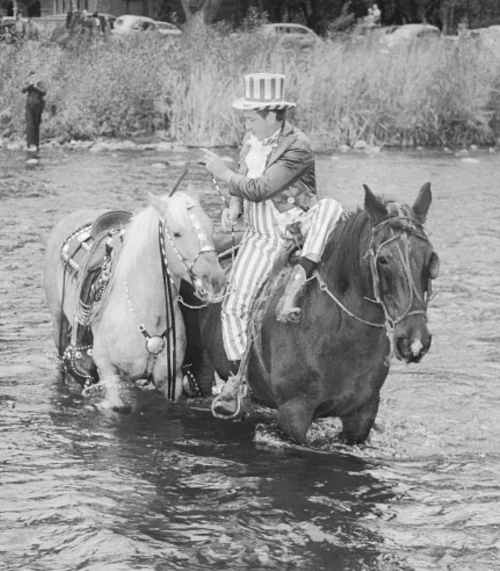
Dear Yahtzee Manifesto,
I’ve heard people say that you shouldn’t change horses in midstream when playing Yahtzee. I don’t get it – can you enlighten me?
borealisbiological76
Dear Borealis Biological,
An old political slogan is probably the last place that a modern Yahtzee enthusiast would look to uncover a universal Yahtzee truth but that’s what we’ve got on our hands here - a case of presidential Yahtzee. “Don’t change horses in midstream” was popularized when Abraham Lincoln, the 16th U.S. president, when he adopted the phrase for propaganda purposes during his 1864 reelection campaign. He wanted to stress the importance of steady political leadership in a time of crisis. The motto has since become a common analogy to emphasize the importance of developing one strategy and sticking to it.
This logic behind the phrase proved sound and it was readily transposed onto Yahtzee strategy. It describes a tactic that when attempting to roll for a certain outcome, a player should never ditch their plan by going for something else after the first or second roll. For example, if you haven’t rolled a second Three after two turns, don’t change horses in midstream but soldier on to glory with Threes on your final roll.
It may appear to some people that changing horses in midstream would be a fine idea. These people are fools who are chasing a fool’s dream. It has never been satisfactory to change your horses in the middle of any moving body of water, be it a stream or otherwise. It is probably the worst place to change your horses. In fact, it often seems that a player is most likely to roll a whole boatload of Threes just as soon as she discards them to go for Fours instead.
The vast majority of catchy political slogans are crafted for the sole purpose of statist indoctrination and therefore are incompatible with the Yahtzee way of life. Because the domination of one man over another, while helpful in gay porn, is not the goal of a Yahtzee disciple, any connections of the game with elitist society are best avoided. The phrase “Stick with your guns” is sometimes used as a substitute maxim as it suggests the same basic concept, but the violent imagery is unappealing to many Yahtzee players. Yahtzee is rather a game of brother and sisterhood which transcends the materialist world. Nevertheless, this old-fashioned political slogan, against all odds, has become an inseparable part of Yahtzee slang culture.
Full House Dis

Dear Yahtzee Manifesto,
I was playing a game recently where I decided to repeatedly pass up a Full House in order to give myself a chance at getting a Yahtzee. Time and time again I found myself rolling a pair and a three-of-a-kind and time and time again I would politely decline the 25 points it offered me. I knew full well that the Yahtzee odds favored me and that I would most likely be rolling many more Fullys. The excitement was really building up as my fellow rollers were flabbergasted by my style of play yet they couldn’t deny that I had obtained the game’s namesake and successfully rolled a Yahtzee.
On the first roll of my last turn, with only my Full House still open, I rolled a couple of Twos along with a mish-mash of other numbers. I naturally kept the Twos and rolled the other three dice. What would appear but three Threes, giving me yet another Full House and securing the 25 points to end a more than fine overall score. Well, think again, because I did something too incomprehensible to even be able to ponder such a tactic. In a move of what some consider immense bravado, I picked up the two Twos and “went for broke”, trying for a Yahtzee Bonus! Lo and behold what would come tumbling out of the can but two Three’s and a second Yahtzee!
I proudly put a check mark in the Yahtzee Bonus section denoting 100 points as well as scoring 25 points for my Full House, using my Yahtzee Bonus as a Joker for that category. All this was done amidst cries of “unbelievable!” and “I’ve never seen anything like it in all my days!” I must admit, neither have I and I quite possibly may never live to see it again. I call it the “Full House Dis!”
Mike L.
Whitesburg, KY
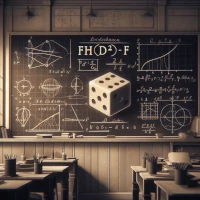
Dear Mike,
There’s not really a question in there but congratulations on a great accomplishment! You’ve reinvented an existing Yahtzee scoring stat and followed in the footsteps of a horde of other Full House deniers. Yahtzee players tend to have intense feelings toward the Full House – either you love it or you hate it. And some players really hate it and show it nothing but intentional disrespect. It is this group of Yahtzee enthusiasts that make use of the supplemental statistic, the Full House Dis Quotient (FHD).
The FHD allows players to record game data beyond the standard Yahtzee score card by keeping track of how many times you dis the Full House during a match. The hate directed at it stems from its ubiquity in many games. Sometimes it seems like every other roll results in a Full House. Indeed, a near-optimal strategy will result in successfully scoring the Full House in over 90% of games. Thus, the haters maintain that you should repeatedly deny the Full House until the last possible moment, just like your plan-B prom date.
The Full House Dis Quotient is beautiful in its simplicity:
FH(D2) - f
FH = 1, if you score 25 points for Full House
FH = 0, if you score 0 points for Full House
d = number of Full House disses
f = number of additional Full Houses after scoring a Full House
Whereas, D is the number of disses in a game and FH binarily represents the ultimate success of scoring the Full House - 0 if you fail to score it, 1 if you do. Should you not procure the 25-point bounty of the Full House you will always end up with a zero for your FHD. You’ll reach the same fate by refusing to pass up a Full House during a game. Only by dissing the Full House as often as possible before successfully scoring it will you truly express your FHD mastery. Thanks to the beauty of the equation, with each dis the FHD quotient will rise exponentially.
So if you do harbor any contempt for the Full House, make full use of the FHD to record your hostility in the record books.
Final Yahtzee Tips
Specialized Yahtzee terms are an essential part of the game's culture, and they provide players with a way to express themselves and add personality to the game. Whether it's a regional variation or a unique expression, the use of slang and jargon in Yahtzee is an important aspect of the game that should be appreciated and embraced.
Slang terminology is an important component of any living language but it tends to grow old quickly into out-dated gibberish.
“It was the bee’s knees!”
“Hey man, that’s totally rad!”
Just like in other long-lived games like baseball, when you’re dealing with the jargon that develops around a game that is over 65 years old, some trends prove resistant to change. In these cases, it is useful for the Yahtzee enthusiast to learn the basics of longstanding slang terminology.
Yahtzee slang has beneficial properties as one of the most commonly employed methods of personal self-expression within the game. It allows players to expand their horizons beyond the sometimes stifling confines of the standard Yahtzee rule book and score card. There is an incredibly wide range of slang terms that vary regionally and even down to the hyper-local level. Individual households often create their own Yahtzee jargon that is only spoken by a handful of players. Infinite diversity in infinite combinations – it is primal feature of Yahtzee, from gameplay variations to strategic decision-making to the unique dice-rolling subculture.



